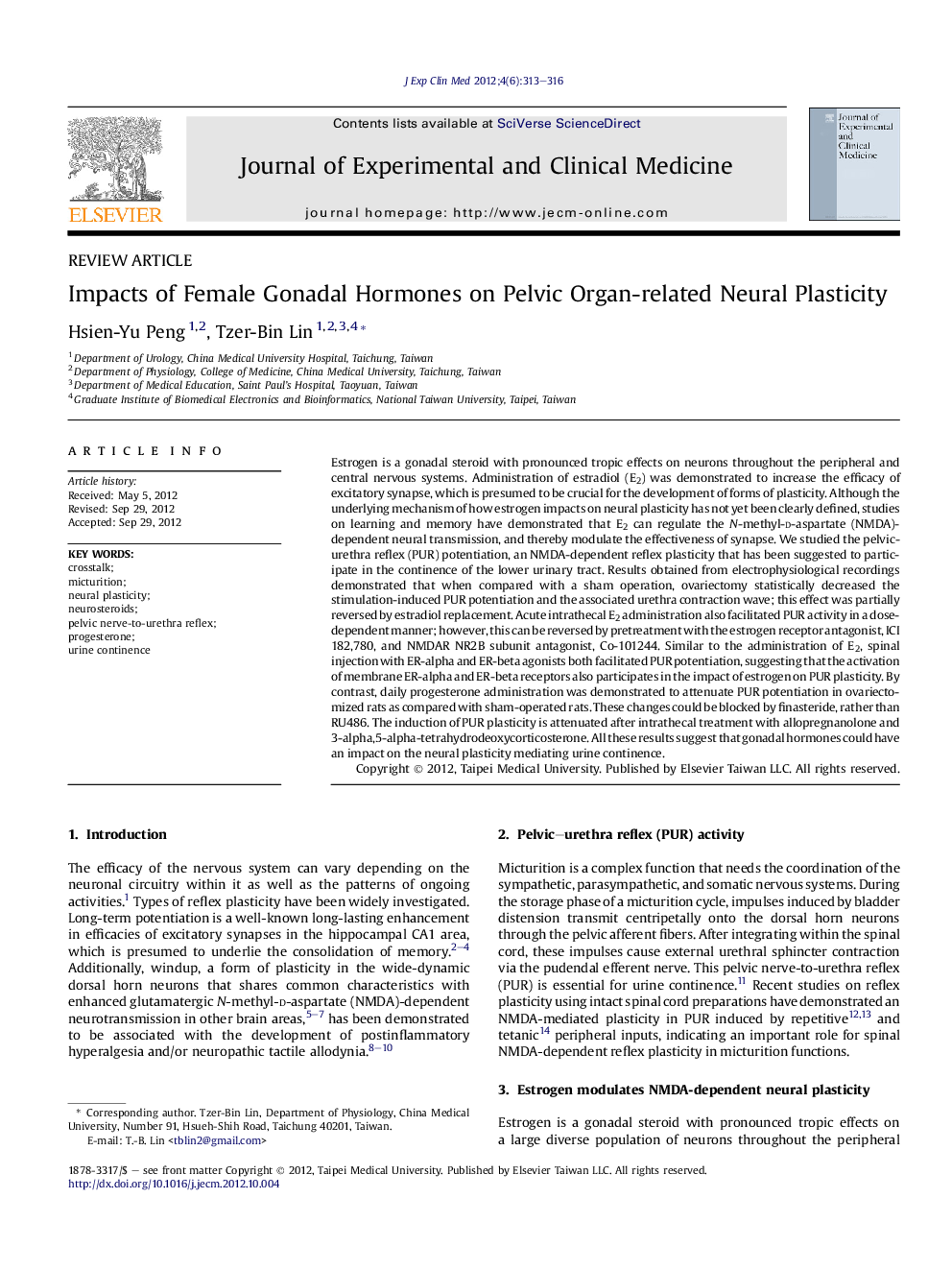| Article ID | Journal | Published Year | Pages | File Type |
|---|---|---|---|---|
| 3477903 | Journal of Experimental & Clinical Medicine | 2012 | 4 Pages |
Estrogen is a gonadal steroid with pronounced tropic effects on neurons throughout the peripheral and central nervous systems. Administration of estradiol (E2) was demonstrated to increase the efficacy of excitatory synapse, which is presumed to be crucial for the development of forms of plasticity. Although the underlying mechanism of how estrogen impacts on neural plasticity has not yet been clearly defined, studies on learning and memory have demonstrated that E2 can regulate the N-methyl-d-aspartate (NMDA)-dependent neural transmission, and thereby modulate the effectiveness of synapse. We studied the pelvic-urethra reflex (PUR) potentiation, an NMDA-dependent reflex plasticity that has been suggested to participate in the continence of the lower urinary tract. Results obtained from electrophysiological recordings demonstrated that when compared with a sham operation, ovariectomy statistically decreased the stimulation-induced PUR potentiation and the associated urethra contraction wave; this effect was partially reversed by estradiol replacement. Acute intrathecal E2 administration also facilitated PUR activity in a dose-dependent manner; however, this can be reversed by pretreatment with the estrogen receptor antagonist, ICI 182,780, and NMDAR NR2B subunit antagonist, Co-101244. Similar to the administration of E2, spinal injection with ER-alpha and ER-beta agonists both facilitated PUR potentiation, suggesting that the activation of membrane ER-alpha and ER-beta receptors also participates in the impact of estrogen on PUR plasticity. By contrast, daily progesterone administration was demonstrated to attenuate PUR potentiation in ovariectomized rats as compared with sham-operated rats. These changes could be blocked by finasteride, rather than RU486. The induction of PUR plasticity is attenuated after intrathecal treatment with allopregnanolone and 3-alpha,5-alpha-tetrahydrodeoxycorticosterone. All these results suggest that gonadal hormones could have an impact on the neural plasticity mediating urine continence.
